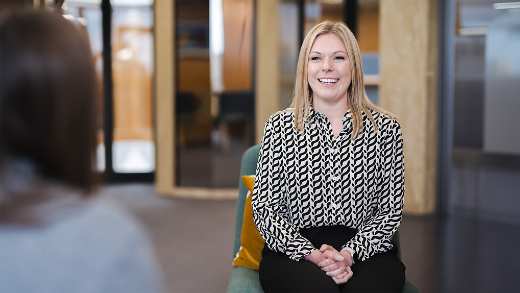Neurodiverse individuals are under-represented in the workplace and employers are missing out, says Owen Morris, MD, Personal Lines, Aviva General Insurance.
We are all different, and our society is diverse. Companies that reflect the diversity in society make more informed decisions, leading to better outcomes for customers and employees. Diversity is vital to the future success of industry, but until recently there has been little focus on neurodiversity, says Owen Morris, MD, Personal Lines, Aviva General Insurance.
Neurodiversity describes people who experience the world differently to others in social, education and workplace environments. It can include people with autism, dyslexia, ADHD and dyspraxia, amongst other conditions.
While estimates suggest one in 100 people1 in the UK have an autism diagnosis, it is thought the number could be much higher since many, particularly older age groups, are undiagnosed.
Just 22% of autistic adults are in any kind of employment ... employers are missing out.
Being neurodiverse can impact an individual’s interaction in everyday life, and it can significantly affect their employment prospects. Neurodiverse individuals are under-represented in the workplace, and just 22% of autistic adults1 are in any kind of employment.
This lack of representation adversely impacts neurodiverse individuals, but it also means employers are missing out on a largely untapped source of talent.
Seeing the world differently by being neurodiverse should be seen as a gift, not a burden. It helps to bring a fresh perspective, encourage new ways of working and ensure that everyone in society can be represented in the products and services they buy.
However, workplaces and employment processes have been in place for many years with little consideration for neurodiversity. This lack of knowledge and understanding has resulted in working environments that are often poorly designed and ill-suited to neurodiverse individuals.
For example, some neurodiverse people may have highly sensitive hearing, and it could prove challenging for them to sit next to a busy corridor every day.
But it is not just the work environment that is a barrier; recruitment processes, ongoing job support and the way that employees are evaluated at work can often put neurodiverse individuals at a disadvantage.
Until now, support in the workplace for neurodiverse people has been limited, but thankfully industries and insurers are waking up to the need for greater and dedicated action in this area.
Last year at Aviva, a group of data scientists, HR representatives and neurodiverse employees worked together with the University of Cambridge’s Think Lab to help design a blueprint that would attract and support neurodiverse people starting in our Aviva Quantum data science practice.
During the design phase we gathered some invaluable feedback and insight from specialist recruitment firms, colleagues and candidates on how we can improve the way we recruit, onboard and performance manage employees.
Working environments are often poorly designed and ill-suited to neurodiverse individuals.
In particular, we learnt a lot about how we can reach neurodiverse candidates – both those in work already, and others who have not yet started their careers - and adapt our recruitment processes to make people feel at ease throughout.
We took the decision to put these learnings into practice across data science vacancies initially so that our standard recruitment programme is now designed with neuro-inclusivity at its heart. This includes making sure our recruitment advertisements, colour schemes and fonts are clear for dyslexic people to read.
We have also adapted our interview process, providing more information ahead of an interview, and adjusted the way we measure a candidate’s engagement.
Ongoing support is also vital. As new employees navigate the world of work – sometimes for the first time - a coach or mentor can be particularly helpful to neurodiverse individuals to provide on-the-job assistance and support for their future career development. It also allows neurodiverse people to demonstrate their skills and understand how they and their role fit into the wider workplace.
Importantly, more action is now being taken across the whole insurance industry.
Last Autumn saw the launch of ‘GAIN’, the Group for Autism, Insurance and Neurodiversity, which aims to highlight the advantages and opportunities of a neurodiverse workplace.
This should lead to some simple, but incredibly effective and fundamental changes that need to be made to the recruitment and interview processes across the industry and to raise awareness, particularly among leaders, of neurodiverse conditions.
Taking these steps will help to create better ways of working that work for everyone, neurodiverse and neurotypical alike. It is important that insurers learn and collaborate with each other to make these fundamental improvements.
The National Autistic Society recognises that neurodiverse people can bring particular skills to the workplace, including strong technical skills, problem solving and pattern recognition.
To an industry that increasingly relies on data and risk-based analysis, these skills can prove invaluable. However, neurodiversity covers a broad spectrum of abilities and talents, and it is important that companies recognise the benefits that neurodiverse individuals can bring across a variety of roles, not just those which require numeracy or technical skills.
Neurodiverse people can bring particular skills to the workplace, including strong technical skills, problem solving and pattern recognition.
Many neurodiverse individuals are already working in our industry, but they may receive limited or ineffective support because of a lack of knowledge and understanding among employers about neuro-inclusivity.
Creating neuro-inclusive workplaces across the industry that better reflect our diverse society will improve outcomes and opportunities for those who are neurodiverse. But it will benefit all employees and allow us to provide better products and services to the communities we serve.
By working collaboratively, sharing knowledge and taking some important steps, we can make the insurance industry an attractive place to work for everyone.
1 National Autistic Society

















